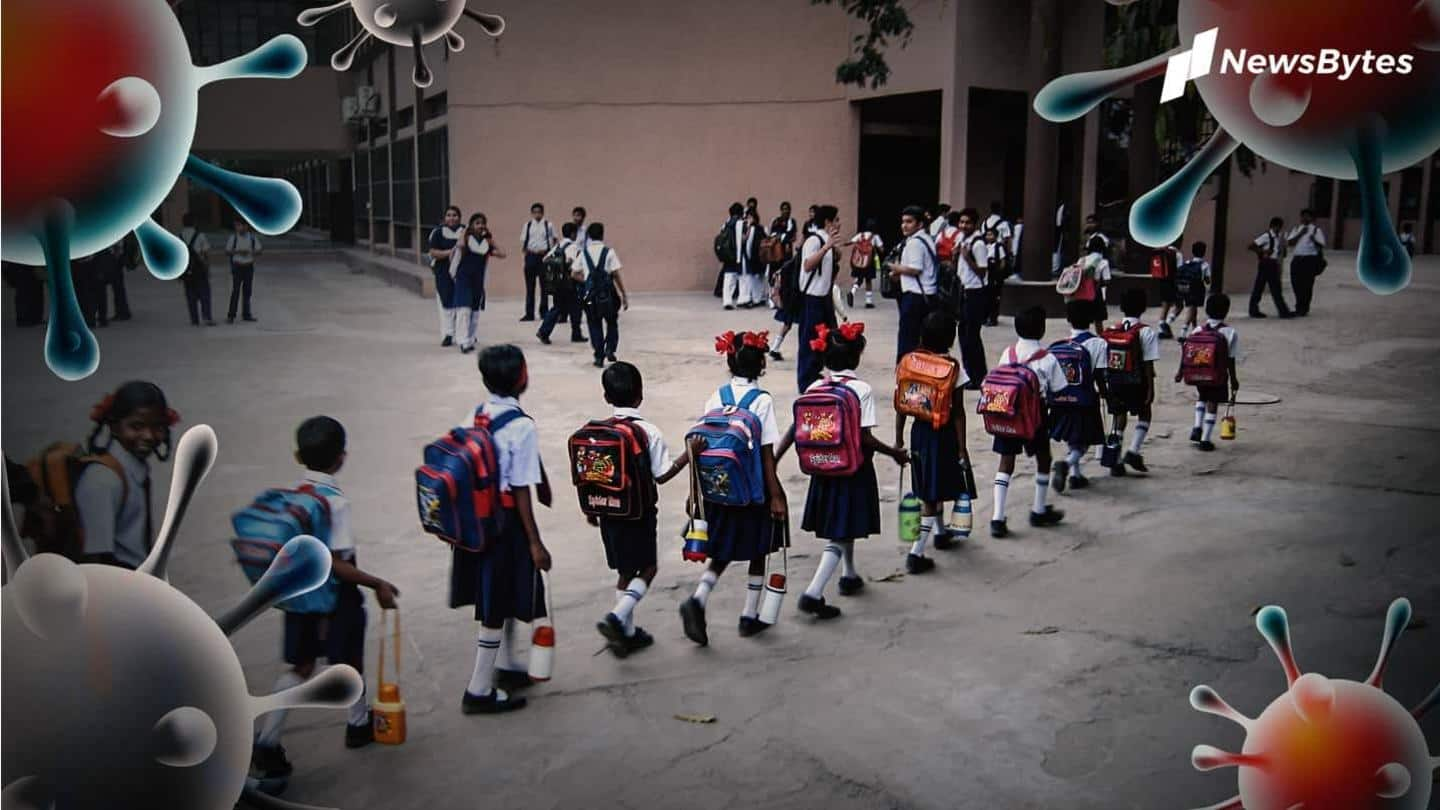
COVID-19: Students fall sick as schools reopen after 2 years
What's the story
As schools reopen after two years of COVID-19 lockdowns, several students across India are reportedly falling sick.
Experts suggest that the two years spent at home have taken a toll on children's immunity.
Children with pre-existing health conditions are complaining of cough, allergies, viral infections, water-borne diseases, respiratory tract infections, and gastrointestinal infections, they said.
Context
Why does this story matter?
Young children develop immunity naturally to various viruses and bacteria through repeated exposure in school classrooms, playing grounds, etc.
They either fall sick or develop a subclinical infection.
These infections are key for the formation of antibodies and cellular immunity, which helps protect them from falling sick in the long run.
However, staying protected at home for two years has delayed this immunity-building process.
Experts
'Children's immune systems being bombarded with infections now'
Children's bodies did not get an opportunity to go through the process of developing immunity at a natural pace during the COVID-19 lockdown, Dr. Krishan Chugh—the head of pediatrics at Fortis Memorial Research Institute—told CNN-News18.
"Now, when the schools have opened...the immune systems of children are suddenly bombarded by these infections. So, they are falling ill very frequently," Dr. Chugh added.
Experts
Falling sick good in long run: Expert
It is "natural" that more children are getting sick now, said Dr. Maninder Singh Dhaliwal, associate director of pediatrics at Medanta Hospital.
The training of the immune system of younger children was on hold for the last two years, he said.
"Now, with increasing exposure, the training process has kick-started...this exposure is good in the long term, and it primes the body," he added.
Experts
Infections not 'extraordinarily' severe: Expert
Dr. Soonu Udani of SRCC Children's Hospital, Mumbai, maintained that there is no need to worry as "this is how their immune system gets ready to face the harsh environment in the real world."
"Only a few children are requiring hospitalization," Dr. Chugh said, adding that the infections in children have not been extraordinarily severe in his experience.
Advice
What should parents do?
Experts suggested that most children don't require immune boosters.
Children require a balanced diet, hydration, and anti-allergic medicines to control symptoms, they said.
Parents should once again train small children about sanitary practices regarding the use of school washrooms and drinking from common water sources, experts said.
"It's better not to share food and follow hand hygiene practices," Dr. Dhaliwal added.
(Source: CNN-News18)